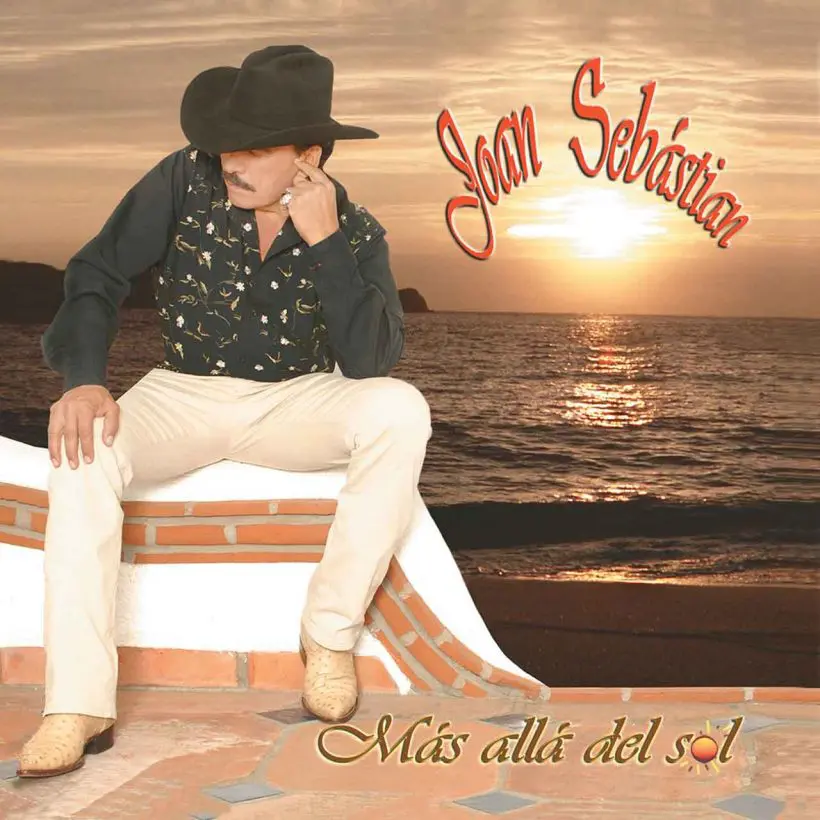‘Más Allá del Sol’: Joan Sebastian Bares His Life-Living Soul
The twelve tracks demonstrate his fluid versatility in compositions united by their engaging storytelling.

The songs on Más Allá del Sol (Beyond the Sun) paint a picture of a life examined through deeply felt moments. For Mexican singer and songwriter Joan Sebastian, who was often called el poeta del pueblo (the people’s poet), those included one sad 8th of April when one of his horses died, described in the song, titled in Sebastian’s typically straightforward style, “Cuando Murío Mi Caballo” (“When My Horse Died”). As told in the lyrics, it was his birthday, a date that from then on would conjure memories of “that fantastic animal” who danced like no other, celebrated in the song to the punchy brass and snare beat of a banda ensemble.
Sebastian, who died in 2015 at age 64, was and would remain one of the biggest regional Mexican stars. He was an interpreter of Mexican styles – norteño music, rancheras, and corridos, and, within that musical framework, a masterful writer and performer of pop songs. The twelve tracks on Más Allá del Sol demonstrate his fluid versatility in compositions united by their engaging storytelling and expression of Sebastian’s lust for living.
Listen to Joan Sebastian’s Más Allá del Sol now.
The title track was a Billboard Latin Songs chart hit for 35 weeks after its release and has endured as a Latin music anthem. Sebastian is backed by a lush, swaying orchestral arrangement, made for dancing close. Listening to “Más Allá del Sol,” it’s easy to imagine the singer moving across the stage radiating charisma, or, as he often did, riding around a rodeo arena, a Tony Bennett on horseback. Another track titled simply “Sol” bounces with joy and some glitz, sending a flirty message. Here, the common musical theme of unrequited love feels like a sunny day rather than a dark night.
When Sebastian does address drowning his sorrows in drink, on “La Medicina,” it’s in an equally lighthearted way, framed by tubas and yipping. As he notes in the song, he’s a man who can compare himself to “a hen with a lot of eggs in the nest,” suggesting that maybe there was not too much to cry about in the romance department.
Sebastian was married several times, and his many love stories were closely chronicled by the Spanish-language press throughout his career. One relationship that was frequently speculated about as “an impossible love” i.e. platonic, was with the actress Salma Hayek. One of Sebastian’s great and most gorgeous love songs, “Eso Y Más,” has been generally acknowledged to be have been dedicated to Hayek, an assertion that was confirmed by Sebastian’s son Julián Figueroa (also a performer, who died in 2023). The spare acoustic guitar ballad, which is the last song on Más Allá del Sol, “Eso y Más” begins with Sebastian stating that “esto que por ti siento” (“what I feel for you”) was more beautiful than the love of Romeo and Juliet.
It was Sebastian’s inspirational optimism, together with his modern take on traditional music, as well as his movie-star looks, that made him so attractive to audiences, in Mexico and in the United States. Born Jose Manuel Figueroa in Juliantla, a small town in Mexico’s Guerrero province on the Pacific Coast, he migrated to Chicago as a young man to seek his fortune, and soon began to tour in the American Southwest, on the way to becoming an icon.
The indomitable spirit that came through in his songs stayed strong despite his difficulties. Two of Sebastian’s eight children were shot and killed. And he endured a long battle with cancer, never ceasing to perform through years of treatment. He recorded more than 35 albums in his lifetime and won four Grammys and seven Latin Grammys. He died on his ranch in his home state of Guerrero.
“My songs are a response to feelings, to what I’ve lived,” he once said in an interview with Billboard. “The important thing is that the songs be sincere, that they be truthful.” He expressed those sentiments in “Viviré lo Mío,” (which could be translated as “I’ll Live My Truth”), a track on Más Allá del Sol:
…Yo, viviré lo mío
Lloraré lo que haya que llorar
Sí, sufriré lo mío
Pero ahora hay que celebrar
Vida, vida hay que celebrar
La vida
I will live my own truth
I’ll cry for what has to be cried for
Yes, I will suffer what I have to suffer
But now we must celebrate
Life, life we must celebrate life










